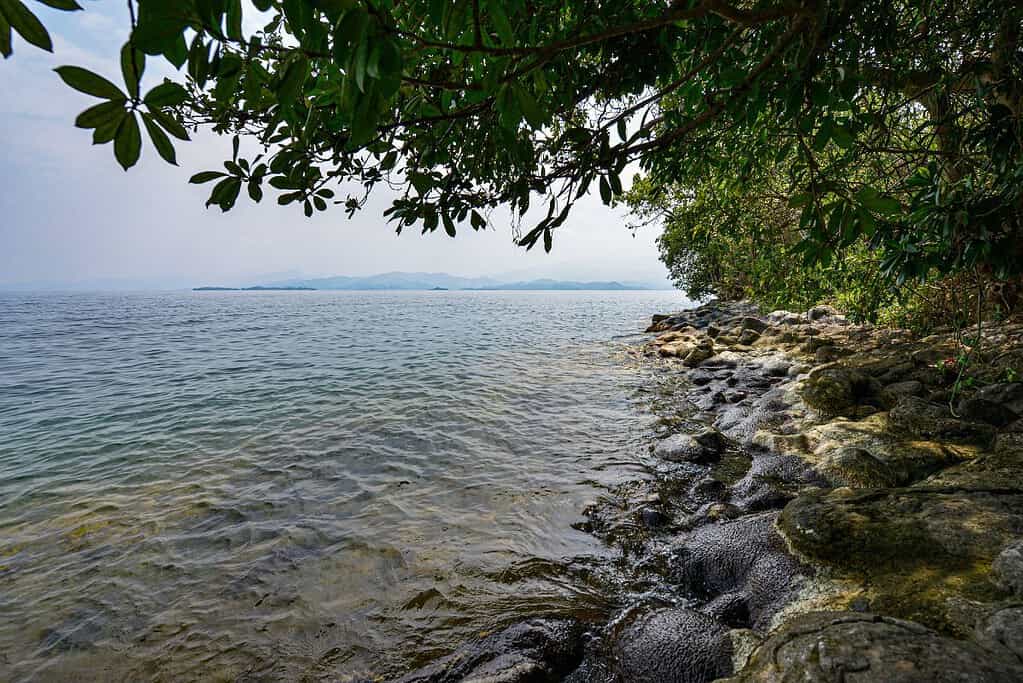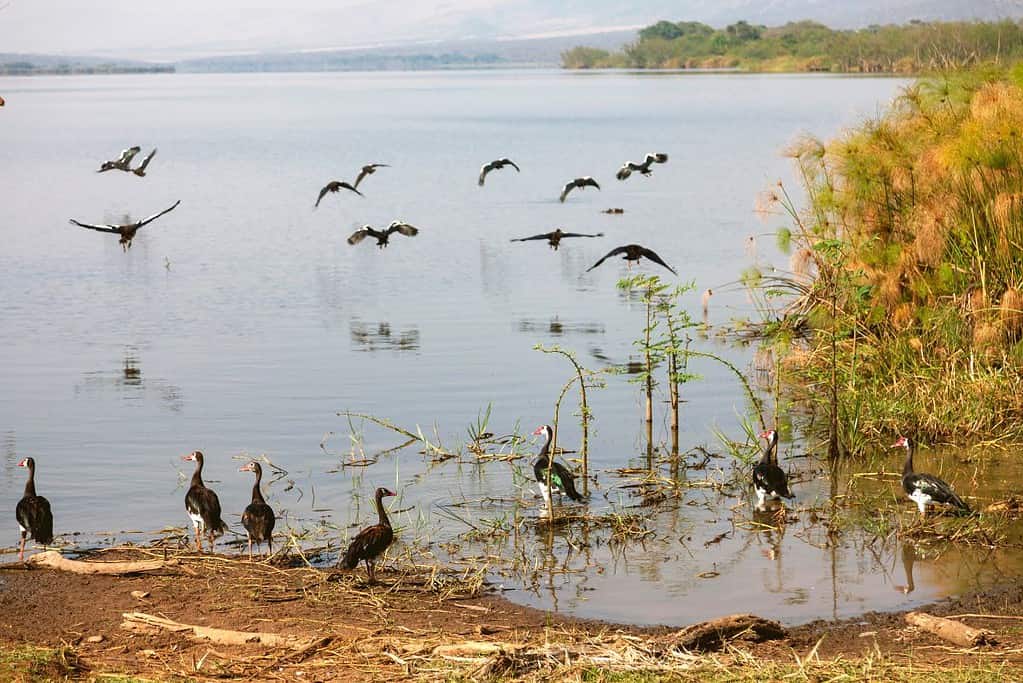Table of Contents
Exploring Activities and Sights Around One of Africa’s Great Lakes
Nestled on the border between Rwanda and the Democratic Republic of Congo, Lake Kivu stands as one of the African Great Lakes, a true marvel of nature that beckons visitors with its serene beauty and vibrant culture. This expansive lake not only offers breathtaking views and peaceful retreats but also hosts a variety of activities that cater to adventurers nature lovers, and cultural enthusiasts alike. In this blog, we delve into the enchanting world of Lake Kivu, exploring the best activities and sights this magnificent lake has to offer.

The Natural Beauty of Lake Kivu
Covering an area of about 2,700 square kilometers, Lake Kivu is the sixth largest lake in Africa and has a unique geographical feature: it lies within the Albertine Rift, the western branch of the East African Rift. This location contributes to its remarkable biodiversity and stunning landscapes. The lake is surrounded by lush green hills and towering mountains, including the imposing Mount Nyiragongo, which is famed for its active lava lake.

Visitors to Lake Kivu are often captivated by its clear, placid waters and the misty ambiance that can envelop its expanse, especially in the early morning and late evening. The shoreline is dotted with charming resorts and quaint fishing villages, where the way of life has remained largely unchanged for decades.
Kayaking and Boat Tours
One of the best ways to experience the vastness of Lake Kivu is by getting out on the water. Kayaking is a popular activity, offering a tranquil way to explore the numerous inlets and islands scattered across the lake. For those looking for a more relaxed outing, boat tours are available, providing an opportunity to learn about the lake’s ecosystem and observe local wildlife, particularly birds like cormorants and kingfishers.
Boat tours also offer the chance to visit the isolated islands of Idjwi and Tshegera, where visitors can enjoy pristine natural settings. These excursions can be arranged through local operators in the towns of Gisenyi, Kibuye, and Cyangugu, each offering unique vantage points of the lake.
Coffee and Tea Plantations
The regions surrounding Lake Kivu are renowned for their fertile soils, making them ideal for growing coffee and tea, two of Rwanda’s most important exports. Many plantations offer guided tours, which allow visitors to learn about the cultivation process, from planting and harvesting to processing and brewing. These tours often end with a tasting session, where you can enjoy some of the freshest and most aromatic coffee and tea in the world.
Hiking and Cycling
The hills and mountains around Lake Kivu provide excellent opportunities for hiking and cycling. One of the most challenging and rewarding hikes is the ascent of Mount Nyiragongo. Although located just across the border in Congo, it is a popular excursion for those staying near Lake Kivu. The hike offers not only vigorous exercise but also the chance to peer into the world’s largest lava lake at the summit.

For those who prefer cycling, the Congo Nile Trail offers an exhilarating challenge. This trail runs along the Rwandan coast of Lake Kivu and offers varied terrains, from smooth paths to rugged mountain tracks, suitable for both beginners and experienced cyclists.
Cultural Experiences
Visiting the communities around Lake Kivu provides insight into the local way of life. Many villages have community centers where visitors can learn about traditional dances, music, and crafts. Participating in a community-led tour not only supports local economies but also promotes cultural exchange, providing a deeper understanding of the local customs and traditions.
Environmental and Conservation Efforts
Lake Kivu is unique not only for its natural beauty but also for its complex ecosystem, which includes methane gas layers deep beneath its surface. This phenomenon has led to innovative environmental projects that extract methane for energy production while protecting the lake’s ecosystem. Visitors interested in environmental conservation can learn about these initiatives through organized tours, which highlight the balance between energy production and environmental protection.

Conclusion
Lake Kivu is more than just a stunning natural wonder; it is a place of adventure, culture, and environmental significance. Whether you are kayaking through its waters, hiking its surrounding mountains, or engaging with local communities, Lake Kivu offers a myriad of activities that promise to enrich your travel experience. As Rwanda continues to grow as a tourist destination, Lake Kivu remains a precious gem in its crown, reflecting the beauty and resilience of this remarkable country.
